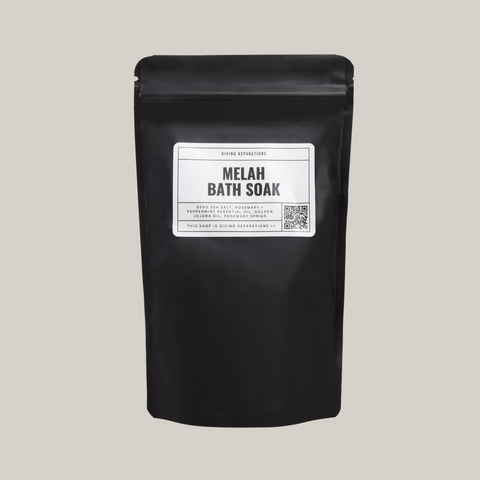

Melah (Dead Sea Salt) Bath Soak
Melah (מֶלַח, pronounced meh-lah) is the Hebrew word for salt, a sacred mineral used in ritual offerings, purification, and healing across ancient Hebrew and Levantine traditions.
This mineral-rich bath soak blends hand-harvested sea salts with soothing botanicals and grounding essential oils to create a purifying ritual of restoration. As it dissolves into warm water, it draws out tension, softens the skin, and rebalances the body’s energy. The scent is earthy and clean—evoking stillness, breath, and release.
In Afro-Semitic and Eastern Mediterranean cultures, salt has long been revered for its cleansing and protective properties—used to sanctify spaces, preserve life, and mark sacred covenants. Modern bathing rituals continue this lineage, offering salt as a vessel for detoxification, muscle relief, and emotional grounding.
Rich in magnesium, calcium, and trace minerals, this soak helps ease inflammation and replenish the skin’s natural balance—inviting a state of calm renewal with every bath.
📦 BUNDLE SPECS
-
Available in 8 oz and 16 oz pouches
-
Hand-blended with dried rosemary
-
Infused with rosemary & peppermint essential oils
-
Finished with golden jojoba oil for skin nourishment
